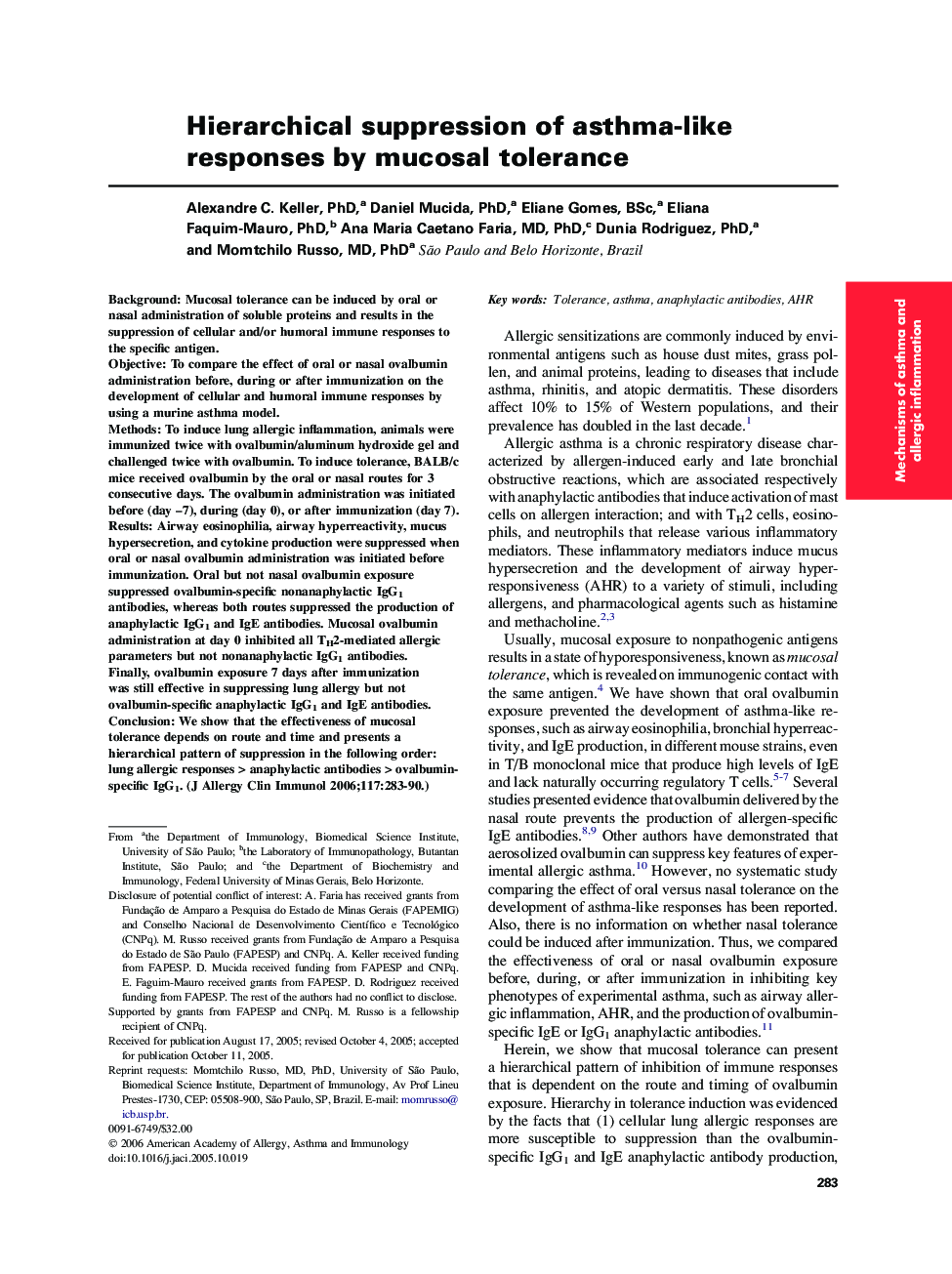| Article ID | Journal | Published Year | Pages | File Type |
|---|---|---|---|---|
| 3203255 | Journal of Allergy and Clinical Immunology | 2006 | 8 Pages |
BackgroundMucosal tolerance can be induced by oral or nasal administration of soluble proteins and results in the suppression of cellular and/or humoral immune responses to the specific antigen.ObjectiveTo compare the effect of oral or nasal ovalbumin administration before, during or after immunization on the development of cellular and humoral immune responses by using a murine asthma model.MethodsTo induce lung allergic inflammation, animals were immunized twice with ovalbumin/aluminum hydroxide gel and challenged twice with ovalbumin. To induce tolerance, BALB/c mice received ovalbumin by the oral or nasal routes for 3 consecutive days. The ovalbumin administration was initiated before (day –7), during (day 0), or after immunization (day 7).ResultsAirway eosinophilia, airway hyperreactivity, mucus hypersecretion, and cytokine production were suppressed when oral or nasal ovalbumin administration was initiated before immunization. Oral but not nasal ovalbumin exposure suppressed ovalbumin-specific nonanaphylactic IgG1 antibodies, whereas both routes suppressed the production of anaphylactic IgG1 and IgE antibodies. Mucosal ovalbumin administration at day 0 inhibited all TH2-mediated allergic parameters but not nonanaphylactic IgG1 antibodies. Finally, ovalbumin exposure 7 days after immunization was still effective in suppressing lung allergy but not ovalbumin-specific anaphylactic IgG1 and IgE antibodies.ConclusionWe show that the effectiveness of mucosal tolerance depends on route and time and presents a hierarchical pattern of suppression in the following order: lung allergic responses > anaphylactic antibodies > ovalbumin-specific IgG1.
